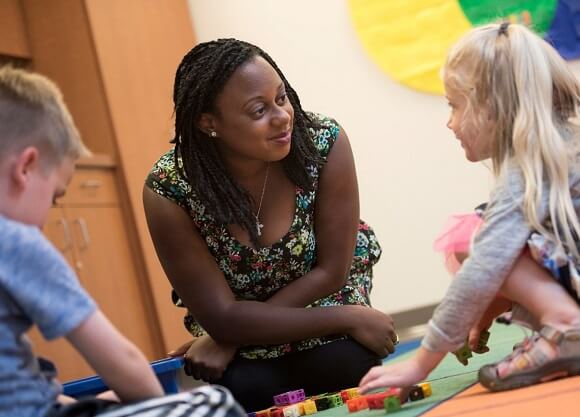
Practical experiences help student teacher appreciate different perspectives
July 26, 2017

July 26, 2017

For this, the fifth-year elementary education student credits her fourth field study observation, during which she and her classmates assisted professors in urban, suburban and bilingual settings. This range of cultural and socio-economic perspectives was especially important to Joseph.
“It taught me how to communicate with kids vastly different than me,” she said. “Moreover, I learned how to negotiate language barriers when dealing with classroom challenges.”
Joseph knows just how unpredictable those challenges can be. She once worked at a special summer camp for educational enrichment in Memphis, Tennessee. In the middle of a lesson one morning, a frustrated student lashed out at her.
“I admit I wasn’t quite ready for that when it happened. It was definitely a scarring experience," Joseph said.
With this experience as a frame, Joseph dove into subjects such as classroom management, student-teacher communication and crisis intervention, asking her professors about every possible scenario and outcome. Now, she feels infinitely more prepared to deal with chaotic events as they happen.
“The big difference is that now I have a lot more theory and practical experience to call upon to back up my actions,” she said.
A course dedicated to diversity in education has also given Joseph the tools to address an issue that is very personal to her. An African-American, she grew up in a predominantly white suburban area of New Jersey where she attended elementary school. Despite her eagerness to learn, she found herself at times struggling to connect with what she felt in hindsight was a narrowly focused curriculum developed for her Caucasian classmates.
“I remember not making connections like I should have — not because of a lack of intelligence, but because the curriculum relied entirely on social paradigms and perspectives that were foreign to me,” Joseph said.
As an educator, Joseph hopes to address the cultural gaps that exist in our education system to better connect material with students of all backgrounds. She has already gotten a head start in her New Haven, Connecticut church, where she teaches Sunday school classes to children from a variety of circumstances — including those in the foster care system.
“I know that I can make a difference helping students understand the world – those who look like me and those who don’t,” she said. “I know I can make an impact.”
Quinnipiac Today is your source for what's happening throughout #BobcatNation. Sign up for our weekly email newsletter to be among the first to know about news, events and members of our Bobcat family who are making a positive difference in our world.
Sign Up Now